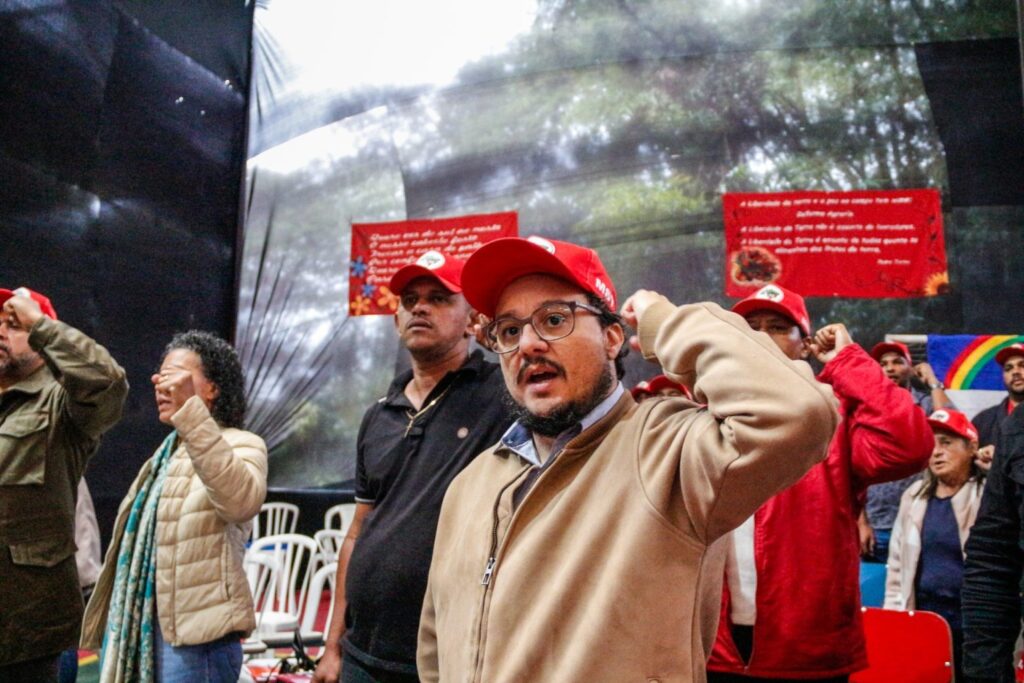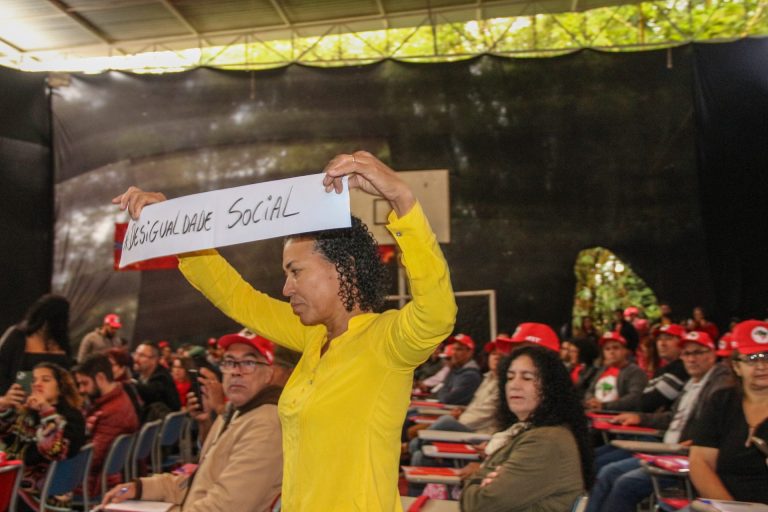Elections
Landless Rural Workers’ Movement candidates defend policies against hunger
Brazil’s MST is running more than 600 candidates in municipal elections, reinforcing the struggle for agrarian reform and better living conditions

By Solange Engelmann
From People’s Dispatch*
Hunger continues to be an urgent and serious problem in Brazilian society, even though it has been alleviated by some of Brazilian President Lula’s policies, such as Bolsa Família. However, today, there are still many families in conditions of food insecurity in over 5,000 municipalities across Brazil.
Seeking to advance policies against hunger, for development, and for a dignified life in the country’s Agrarian Reform areas and municipalities, in this year’s municipal elections the Landless Rural Workers’ Movement (MST) is mobilizing more than 600 candidates, including landless workers and supporters of agrarian reform, to strengthen the fight for rights and the Agrarian Reform agenda in the area of institutional politics.
The candidates are taking to the municipal territories issues that are central to Brazilian society, such as the right to dignity in the countryside, to food and for Popular Agrarian Reform. Igor Felippe Santos, from the MST coordination and electoral working group, emphasizes that among the main proposals defended by the MST’s candidates is one to propose measures to combat the hunger situation.

“One of the political proposals is to strengthen food production. In other words, strengthening Agrarian Reform, family farming and fighting hunger, because that way you’ll have more food to tackle this problem in the country. Public policies to build popular kitchens in low-income areas to serve the community, and policies to guarantee basic food baskets and other measures and initiatives for the poorest populations.”
The candidates also have as their central proposal a set of projects and actions defended by the MST over more than 40 years of struggle, such as access to land, with the expropriation of new estates by the federal and state governments, so that all the families in the camps are settled; support for the production of healthy food and better living conditions, with the construction and renovation of rural housing, schools and quality public education in the countryside, as well as health, culture, leisure, among other demands in the settlement areas in Brazilian municipalities.
“Above all, it’s important for the municipality to understand that an encampment is the result of a social problem of poverty and inequality, and that people organize, fight and occupy an area because they want better living conditions. The second axis is measures in the municipalities to strengthen the settlements, related to strengthening a new form of agricultural production that we defend, which is agroecology,” said Santos.

Municipalities also have an important role to play in tackling the climate crisis and its effects, and can develop medium and long-term projects, as well as supporting projects with a social and environmental role, such as the MST’s National Plan, “Planting Trees, Producing Healthy Food,” which encourages the production and planting of tree seedlings in all Agrarian Reform territories and in cities, with the goal of planting 100 million trees in ten years.
“The construction and development of seedlings, nurseries, the definition of areas for planting trees. This is an emerging issue in society due to climate change and global warming, and these are fundamental measures in the sense of building a new model of agriculture, which is able to provide land for the poorest families, develop production to guarantee the production of healthy, quality, poison-free food for the population of the municipality and the whole country,” says Santos.
The leader also explains that, in addition to national public policies created by the federal government, such as Bolsa Família, the problem of hunger also needs to be tackled in the municipalities through the development of a set of measures, which are being proposed by the candidates. “Hunger is one of the main problems in our country, so each municipality needs to develop policies, measures and pass laws to tackle this problem, based on its reality.”

This set of problems and demands in the country are being addressed by the MST’s candidates in this year’s municipal elections, who also play an important role in strengthening the historic struggle of the working people in the municipalities, says Santos. “This is the beginning of a journey, and from these MST candidacies we want to continue sowing, planting, seeking allies in the process of consolidating this new agricultural model and also that the Movement’s candidacies are not just restricted to the economic and corporate agendas of the settlers, but embrace the agenda of all working class organizations,” he concludes.
*This article was translated from an article by Solange Engelmann originally published by the MST.



